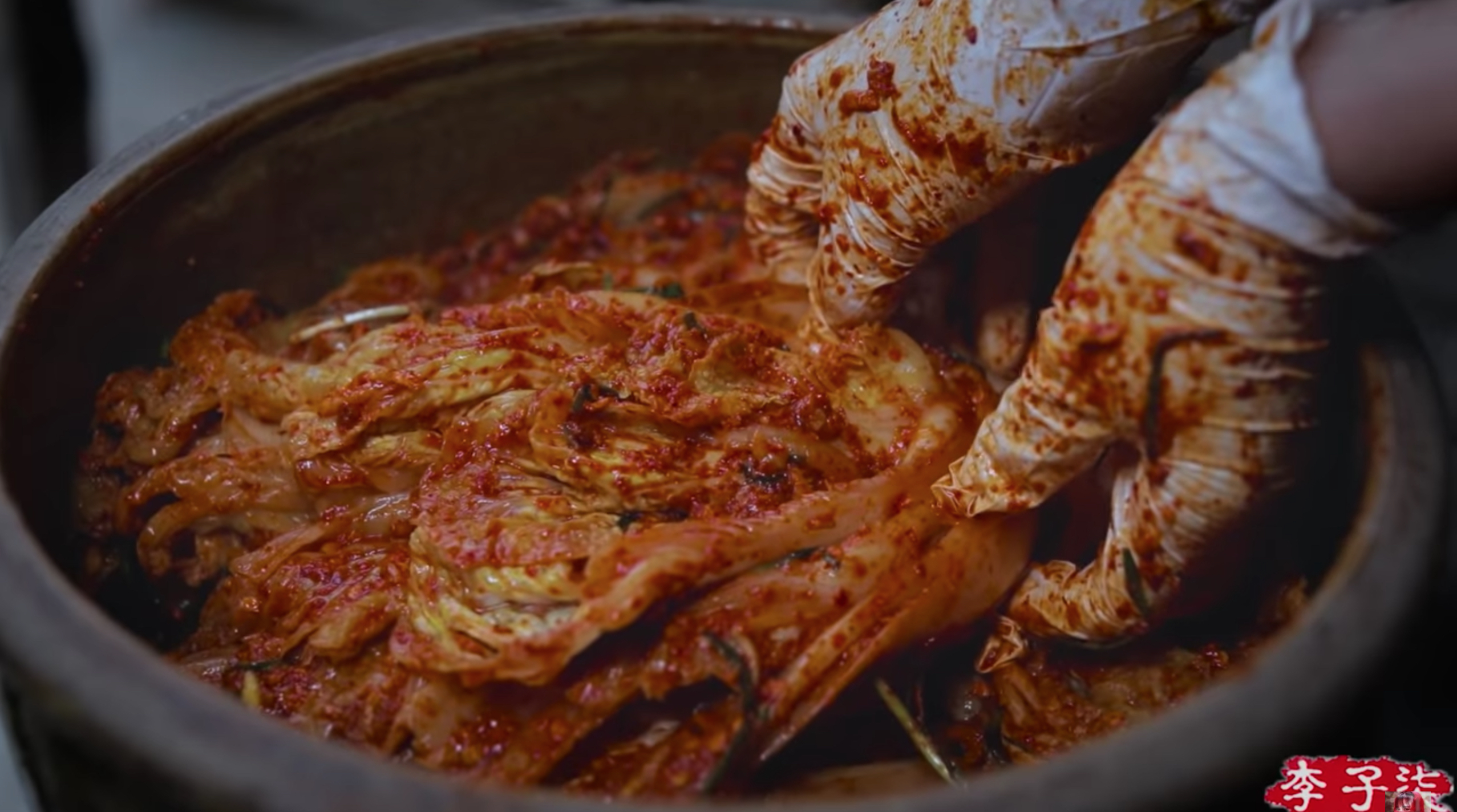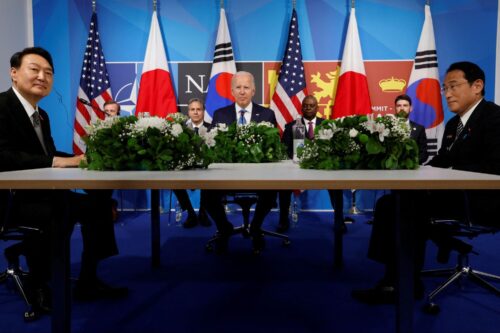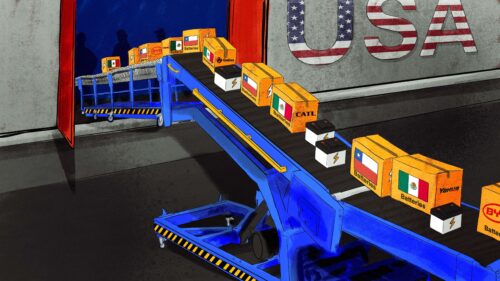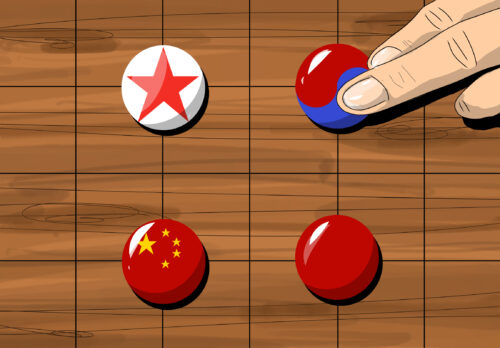Who owns the right to make kimchi?
Kimchi — a spicy, pungent side dish made of pickled and fermented vegetables — has once again become a flashpoint in a cultural conflict between China and South Korea that has been building for years.

Kimchi — a spicy, pungent side dish made of pickled and fermented vegetables — has once again become a flashpoint in a cultural conflict between China and South Korea that has been building for years.
The recent flare-up of the ongoing dispute over kimchi’s origins occurred last week, when Lǐ Zǐqī 李子柒, the Chinese food celebrity with more than 14 million subscribers on YouTube, uploaded a video of her making “pickled mustard tuber, dried white radish, preserved chicken, meat, and sausages.” The clip also shows Li making fermented cabbage with chilies — in other words, kimchi.
While the video doesn’t explicitly declare kimchi as a Chinese dish, a number of South Korean YouTube users were quick to condemn Li for disrespecting their national food. They argued that given that the video was tagged as “Chinese food,” and that Li is known for cooking authentic Chinese meals in the countryside, her omission of mentioning kimchi’s deep roots in their country could mislead viewers about its origins.
“Kimchi first emerged in South Korea and it’s a way of life here. It is South Korean; it is not Chinese,” one comment said. Another one added, “It seems like Chinese people love laying claims to everything except COVID-19. Thank you for introducing Korean food, though!”
Some angry comments pointed to an old kimchi-making video released by Li Ziqi three years ago. In its description, the YouTube star wrote that kimchi “is the traditional food from Yanbian,” a Korean autonomous region situated in China’s Jilin Province.
To her critics, the previous video was evidence that she plagiarized the fermentation process of Korean kimchi and rebranded it as a Chinese dish. “It would be a waste of time to educate Li about kimchi’s history because she’s ignorant and brainwashed. I beg you to take your hands off our soul food, Li!” a YouTube user wrote.
While YouTube is blocked in China, the negative comments quickly made their way to Chinese social media, and that’s when the dispute intensified. On Weibo, the hashtag “Li Ziqi bombarded by South Korean internet users for making kimchi” (#李子柒做泡菜遭韩国网友围攻#) has so far generated more than 800 million views, with most people engaging with the topic castigating kimchi proponents in South Korea for “unfairly targeting Li” and “distorting the history of kimchi.”
Meanwhile, legions of Chinese nationalists flooded Li’s YouTube channel with comments calling for critics from South Korea to stop claiming kimchi as its own. “South Korea trying desperately to declare the sovereignty of kimchi is an indication of its insecurities about its national heritage,” a Chinese commentator wrote.
The social media spat surrounding Li is continuation of a long-standing cultural war between China and South Korea over the origins of kimchi. Only two months ago, another kimchi-related clash erupted after Beijing won a certification from the International Organization for Standardization (ISO) for pao cai (泡菜 pàocài), a pickled vegetable dish from China’s Sichuan Province, and the country’s nationalist tabloid Global Times subsequently claimed that the award was recognition of “an international standard for the kimchi industry led by China.” South Korea’s agriculture ministry later released a statement saying that pao cai’s newly earned status “had nothing to do with kimchi.”
Identity politics are no small matter in China, where concerns about foreign forces — especially neighboring countries — claiming unsubstantiated ownership of what Chinese people see as their cultural heritage remain deeply ingrained in the country’s psyche.
When it comes to South Korea, Chinese people’s feelings often run deeper than any other countries that they have issues with. Since the Korean War in 1950, which saw an estimated 900,000 Chinese soldiers losing their lives while fighting against South Korean and American troops, many Chinese people seem to harbor an underlying resentment toward the South Koreans.
In the name of preserving China’s cultural heritage, there’s a litany of traditions and items that Chinese people, justifiably or not, feel the need to defend against ownership claims from Korea, including the Dragon Boat Festival (端午节 duānwǔjié), feng shui, and Confucianism. The perception that South Korea is constantly trying to appropriate Chinese culture is so pervasive in the country that it has led to the popularization of the sarcastic phrase “The universe is created by sticks” (宇宙是棒子创造的 yǔzhòushìbàngzǐchuàngzàode) — a mockery built on a slur for people of South Korean descent.






